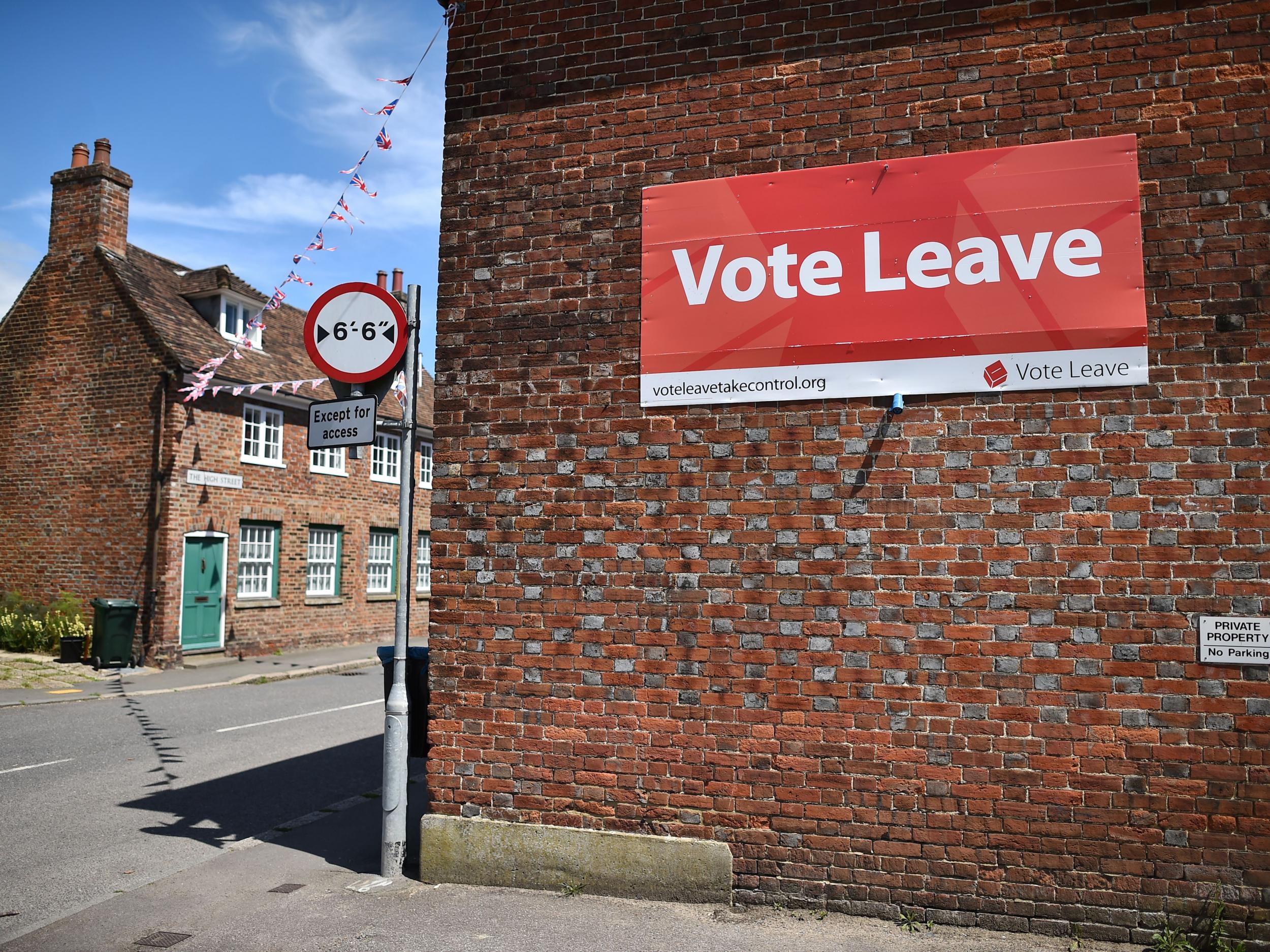Austerity, not immigration, to blame for inequality underlying Brexit vote, argues Oxford professor
'Almost all other European countries tax more effectively, spend more on health, and do not tolerate our degree of economic inequality'

Your support helps us to tell the story
From reproductive rights to climate change to Big Tech, The Independent is on the ground when the story is developing. Whether it's investigating the financials of Elon Musk's pro-Trump PAC or producing our latest documentary, 'The A Word', which shines a light on the American women fighting for reproductive rights, we know how important it is to parse out the facts from the messaging.
At such a critical moment in US history, we need reporters on the ground. Your donation allows us to keep sending journalists to speak to both sides of the story.
The Independent is trusted by Americans across the entire political spectrum. And unlike many other quality news outlets, we choose not to lock Americans out of our reporting and analysis with paywalls. We believe quality journalism should be available to everyone, paid for by those who can afford it.
Your support makes all the difference.Austerity, rather than immigration, is the key factor that underlying Britain’s decision to leave the EU, a professor at the University of Oxford has argued.
Danny Dorling, Professor of Geography at the University, claims the fundamental reason for worsening health and declining living standards in the UK is the growing economic inequality and public spending cuts that have accompanied austerity, arguing immigration has been used as scapegoat for these issues.
Writing in the British Medical Journal he says: “Almost all other European countries tax more effectively, spend more on health, and do not tolerate our degree of economic inequality.
“To distract us from these national failings, we have been encouraged to blame immigration and the EU. That lie will now be exposed.”
A YouGov survey in March cited "immigrants willing to work for low wages" as one of the top three economic problems for leave voters, alongside EU rules and regulations and the last Labour government.
Leave campaigners, carried to victory on a mandate to reduce immigration, have so far yet to spell out how many migrants they plan to let in after Brexit.
Following the UK narrowly voting for Brexit, there have been numerous reports of ethnic minorities and immigrant families being targeted for racial abuse, with police saying the number of hate crimes recorded for the last two weeks in June has spiked by 42 per cent on this time last year.
Professor Dorling writes: "The UK has been systematically underfunding education and training, increasing student loans and debt, tolerating increasingly unaffordable housing, introducing insecure work contracts, and privatising the services the young will need in future."
"The UK has benefited greatly from the immigration of healthier than average young adults, educated at someone else’s expense; many of them work in our health, educational, social, and care services.
"Their arrival reduced heath inequalities and improved our overall health."
Professor Dorling notes that data released by the Office for National Statistics (ONS) on the day of the EU referendum, showed there had been 52,400 more deaths in the year to June 2015 compared with the year to June 2014 in the UK.
“These rises,” writes Professor Dorling, “followed the austerity policies enacted by the 2010 coalition government."
"Self reported health was a key component of David Cameron’s wellbeing index, and it has declined in every year of his premiership, most rapidly towards the end.”
He warns that the health and social services crises "will deepen as national finances deteriorate and as it becomes harder to recruit and retain staff from the European mainland."
Professor Dorling adds that any anger from Remain voters over the referendum result should "be directed squarely at all the post 1979 UK governments that have allowed economic inequalities to rise so high; that prevented a fair proportional voting system being introduced; that have harmed people of all ages; and that have placed future generations in peril."
The latest annual British Social Attitudes Survey found that years of austerity and the end of a “golden age” of upward social mobility seen in later 20th century Britain may have been a major factor in the vote to Brexit.
The 2015 report by NatCen Social Research found the years of austerity since the financial crash of 2008 have entrenched the class divide and hardened attitudes on a range of political subjects, including possible anti-establishment feelings towards bureaucracy and government – and also immigration.
Labour Leader Jeremy Corbyn has also said Britain’s vote to leave the European Union reflects the anger of communities “marginalised” by the Government.
“Many communities are fed up with the cuts they’ve had, fed up with economic dislocation and feel very angry with the way they have been marginalised by successive governments,” he said.
“Many of the poorest communities in Britain had the biggest cuts in government expenditure to support their local authorities and at the same time were refused any special help to help with issues like school places and health places [affected by immigration].”
Join our commenting forum
Join thought-provoking conversations, follow other Independent readers and see their replies
Comments